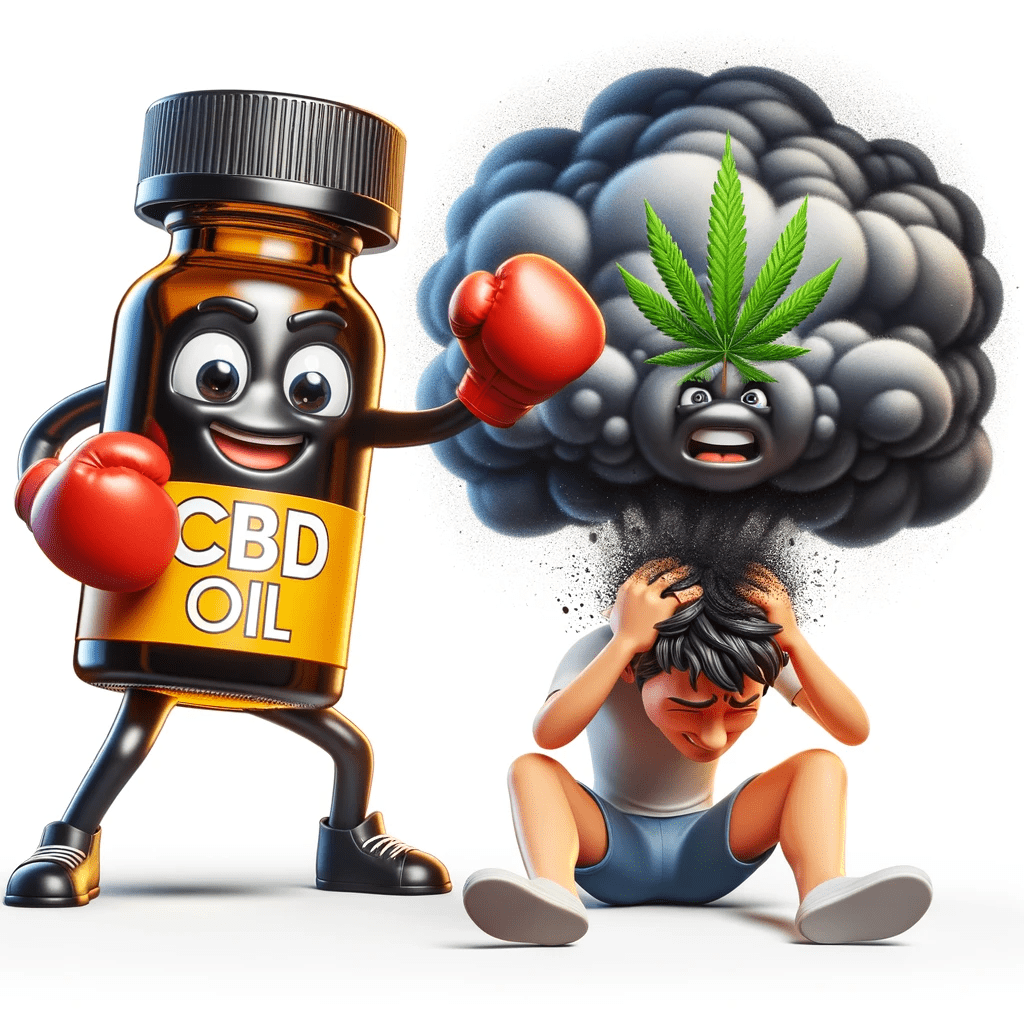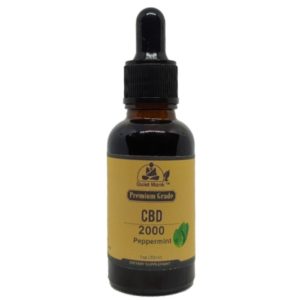
Migraines, a form of neurological ailment, often manifest as intense headaches and can additionally cause nausea, sensitivity to light, and exhaustion.
For a number of individuals, the disabling nature of migraines can result in missed days at work or school. While no cure exists, there are various therapies aimed at reducing the occurrence and intensity of these episodes. Relief varies from over-the-counter medications to prescription alternatives for some.
Consider the possibility of a natural remedy to decrease migraine occurrences.
Here, CBD emerges as a viable option for migraine alleviation
Found in cannabis, CBD exhibits anti-inflammatory and analgesic qualities. Although formal research on its efficacy for migraines is lacking, many sufferers report finding solace through CBD oil.
This discussion will explore current findings on migraines and CBD, and how individuals utilize CBD products for persistent pain and other headache conditions.
Key Insights:
- Migraines represent a complex neurological issue, with triggers and treatments varying widely among individuals, making it a challenging condition to manage.
- CBD, a naturally occurring compound in cannabis, has been scrutinized for its anti-inflammatory and pain relief capabilities.
- Despite limited research endorsing CBD oil for migraines, numerous individuals continue to use CBD products to enhance their comfort and reduce migraine episodes.
- Consulting a medical professional is crucial for those experiencing migraines.
Can CBD Assist in Alleviating Migraine Attacks?
The medical community lacks sufficient peer-reviewed studies on humans to conclusively determine CBD’s effectiveness against migraines. Despite this, an estimated 34 million Americans grappling with migraines have reportedly turned to CBD products to ease their pain and lessen the frequency of their headaches.
CBD’s broad-reaching effects are attributed to its interaction with the endocannabinoid system. Yet, substantial research is necessary to fully understand its potential in addressing neuropathic pain, such as migraines.
While beneficial for many, CBD isn’t a panacea, and discussing treatment options with a healthcare provider is advisable.

How Some Individuals Attain Migraine Relief Through CBD
When considering nonprescription CBD products for migraine management, it’s vital to acknowledge the absence of formal, medically reviewed studies on CBD’s efficacy for migraine headaches in humans.
Furthermore, the CBD industry is known for lax regulations, with numerous fraudulent companies exploiting uninformed consumers by offering ineffective or potentially harmful products.
Nevertheless, a considerable number of individuals resort to nonprescription CBD and medical cannabis for migraine relief. Here’s their advice for selecting safe and potent CBD oils for wellness objectives.
Choosing Full Spectrum CBD The hemp flower boasts over a hundred bioactive components, including CBD. Other cannabinoids and terpenes have been found to enhance the effectiveness of CBD oil through the ‘entourage effect.’
Typically, CBD oils come in three types:
- Full Spectrum CBD: Through meticulous extraction, full spectrum CBD retains the most natural phytochemical profile, offering comprehensive and balanced benefits.
- Broad Spectrum CBD: Legal hemp plants may contain up to 0.3% THC. To enjoy the ‘entourage effect’ without THC, broad spectrum CBD undergoes additional filtration to eliminate all THC traces.
- CBD Isolate/CBD Distillate: Often the most affordable, CBD isolate contains solely CBD from hemp. While it offers pure CBD benefits, higher doses might be needed for comparable effects.
High Doses of CBD
CBD is recognized for its favorable safety profile. High doses don’t induce psychoactive effects and are generally well-tolerated.
Most studies on CBD’s pain-relieving properties note higher doses (50 MG+) as most effective.
This doesn’t imply starting with high doses for CBD novices. Gradually increasing the dosage over several weeks is recommended to allow the endocannabinoid system to adapt.
Incorporating Other Lifestyle Changes
While CBD is helpful for many in managing chronic pain and migraines, the most crucial aspect of any wellness goal is considering one’s habits and lifestyle.
Identifying triggers and implementing specific lifestyle modifications can significantly reduce the frequency and severity of migraines. This may include an anti-inflammatory diet, regular exercise, adequate sleep, and stress reduction techniques.
Understanding Migraine Symptoms
Migraines are not just intense headaches; they’re severely painful and debilitating. Some individuals experience ‘aura’ symptoms like light flashes or blind spots before an attack.
Migraines often strike abruptly, causing intense throbbing or pulsing in one area of the head, accompanied by nausea, vomiting, and extreme sensitivity to light and sound, lasting hours or even days.
Common Migraine Treatments
No universal remedy for migraines exists, and effectiveness varies from person to person.
However, common treatments include over-the-counter painkillers like ibuprofen or aspirin. If these aren’t effective, stronger prescription painkillers might be an option.
Some find daily preventive medications helpful in reducing the frequency and severity of migraines.
Professional medical advice is crucial for those battling migraine headaches, as a healthcare provider can offer lifestyle guidance and potentially prescribe medication to reduce migraine frequency.
How CBD Oil Functions in Migraine Management
CBD, a non-psychoactive compound from cannabis, interacts with the endocannabinoid system, believed to maintain balance in various vital systems, including pain perception and inflammation.
Researchers suggest that CBD might effectively treat migraines by working through multiple pathways in the endocannabinoid system, unlike some anti-inflammatory drugs or painkillers.
While many anecdotal reports exist of individuals using cannabis products for various wellness goals, including migraines, more research is necessary to understand the full potential of CBD and other cannabinoids for treating migraines and headaches.
The Current State of Research on CBD Oil and Headache Disorders

CBD oil, increasingly popular as a natural health remedy, has shown promise in animal studies for reducing inflammation and pain, and is believed to offer similar benefits in humans. A few small clinical trials have also examined CBD oil for headache disorders, yielding promising outcomes.
However, much of the research on CBD as a potential migraine treatment investigates high concentrations of both CBD and THC, which aren’t widely available due to federal restrictions on marijuana-derived CBD products.
Despite limited research on CBD-only products for migraines, individuals continue to use high-quality CBD oil to alleviate some migraine symptoms. Learn about topical CBD for neck pain.
Medical Marijuana for Migraine Pain
Medical marijuana, containing more THC than hemp-derived CBD products, can produce psychoactive effects. Those in states with medical marijuana programs might consult healthcare providers about using cannabis for chronic migraine pain.
Migraines may qualify for medical marijuana treatment in some regions. Consultation with a qualified physician is necessary.
Some medically reviewed studies highlight THC and CBD’s combined effects in pain relief associated with headaches and migraines, interacting with serotonin receptors while maintaining a strong safety profile.
However, not everyone is inclined to use psychoactive substances for chronic pain. In such cases, hemp-derived, full spectrum CBD oil might offer an alternative. An easy to take along is a CBD roll-on. Easy to carry!
Frequently Asked Questions What are Migraines?
Migraines are a multifaceted neurological condition with varied triggers and treatments, making it a challenging condition to manage.
How to Alleviate Migraine? There’s no universal solution for migraines. Common treatments include over-the-counter painkillers like ibuprofen or aspirin. If these aren’t effective, more potent prescription painkillers might be considered.
How Does CBD Oil Work? CBD, a cannabis-derived compound, interacts with the endocannabinoid system, resembling neurotransmitters in this system to maintain balance. This explains CBD’s varied effects and individualized responses.
Should I Use CBD or THC for Migraines? Both CBD and THC offer potential benefits for migraine relief, but their effects differ. CBD is often preferred for its non-psychoactive properties, while THC might help by affecting brain pain signals and reducing nausea associated with migraines.
Can CBD Oil Alleviate Migraine Symptoms? While CBD oil and other non-prescription cannabis products lack extensive medically reviewed studies on humans, many individuals use CBD products to alleviate migraine pain and frequency. However, it’s not a guaranteed cure, and discussing options with a healthcare provider is advisable.
More research can be found here in this latest study: Cuttler, C., Spradlin, A., Cleveland, M. J., & Craft, R. M. (2020). Short-and long-term effects of cannabis on headache and migraine. The Journal of Pain, 21, 722-730.




